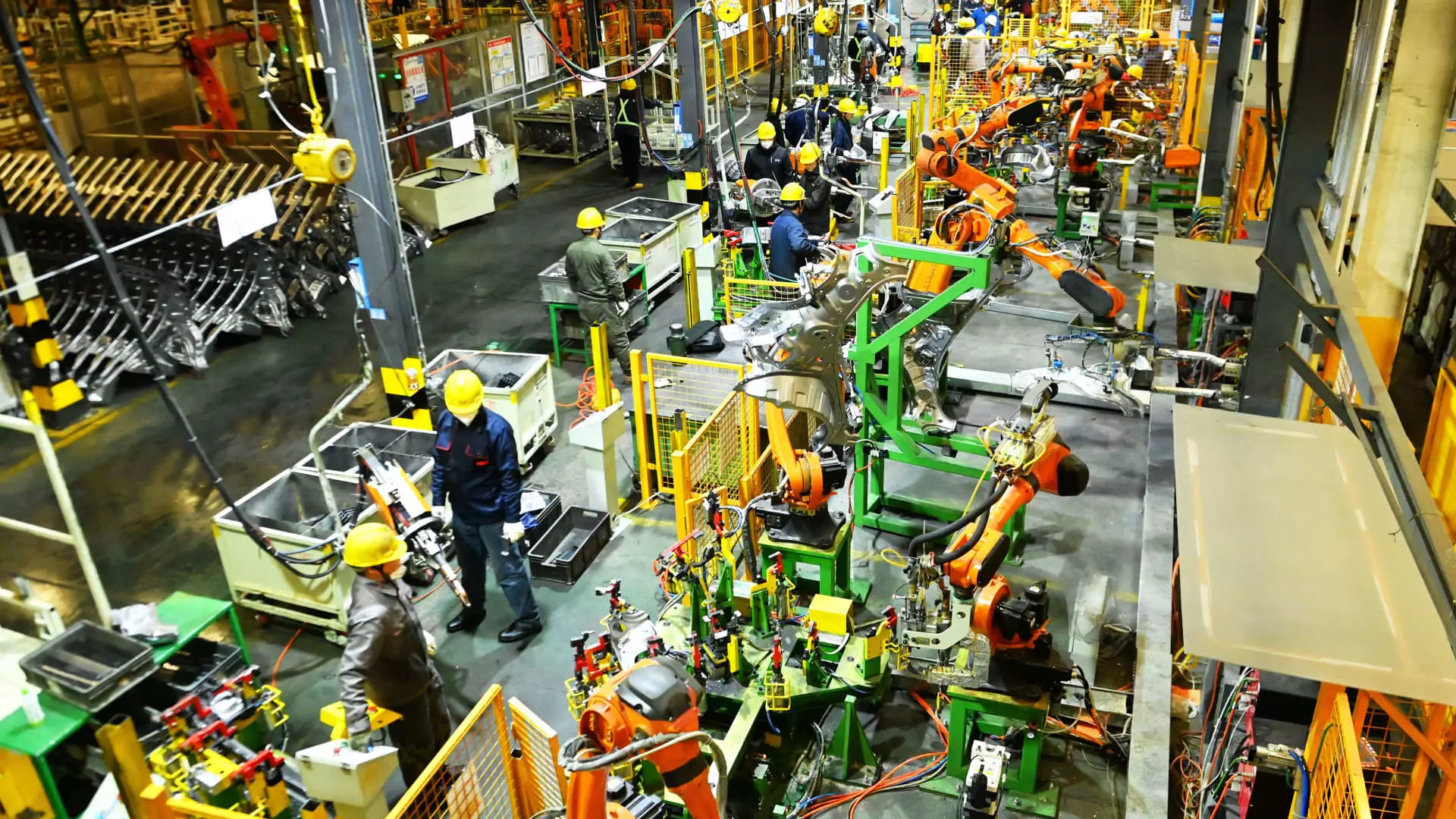The automotive sector in the United States finds itself in a precarious position thanks to the volatile tariff policies of the Trump administration. Recent reports suggest that President Trump is contemplating exemptions for certain automakers from tariffs on imported auto parts. While this may sound like a glimmer of hope for an industry staggering under the weight of heavy tariffs, one must wonder whether these exemptions are mere political maneuverings rather than a genuine relief strategy. This approach reflects a troubling lack of clarity and consistency in trade policy that could stifle American innovation and manufacturing.
Trade Wars and Their Unraveled Impacts
At the heart of the tariff dilemma is the rationale behind these obstacles: to counteract illegal activities such as fentanyl production originating from China and to protect domestic industries. However, the consequences of such unilateral actions resonate far beyond the intended targets. By imposing sweeping levies on steel, aluminum, and auto parts, the administration has inadvertently endangered the very foundation of the American automotive industry. Tariffs intended to protect American jobs may end up decimating them if manufacturers cannot afford the increased costs. Often, the tactic of trade wars serves more as a blunt instrument rather than a fine scalpel—creating broad ripple effects that harm the intended targets.
The Political Theater and Its Players
The political theater surrounding these tariffs often appears to prioritize optics over substance. For instance, Trump’s declaration that he has no intention of allowing more foreign cars into the U.S. raises eyebrows. “We want to make our own cars,” he asserted in a brash proclamation that struggles to acknowledge the intricate global supply chains integral to modern automotive manufacturing. Such a gritty stance may resonate with certain voter bases but ignores the complex reality faced by automakers who are part of an interconnected web of international trade.
As various policy groups representing automakers collectively lobby for relief, their voices illustrate a sense of desperation masquerading as unity. The desire for tariff exemptions is rooted not merely in corporate greed but in genuine concern for the livelihoods of American workers in this precarious industry. If the administration continues to ignore these appeals, it risks not just the decline of the automotive sector but the wider American economy that relies on its resilience.
Innovation Stifled by Inconsistent Policy
General Motors CEO Mary Barra’s plea for clarity is particularly poignant. It’s troubling to think that a giant in the automotive industry like GM lacks a clear roadmap due to fluctuating tariffs and trade policies. What the industry needs is a coherent strategy that encourages investment, innovation, and job growth—not additional vagueness. Without a consistent policy framework, companies are led to make increasingly risky financial decisions, fearing future regulations could make their existing investments obsolete.
Innovation thrives in an environment where businesses can clearly project costs and strategize accordingly. The rapid pace of technological advancement—particularly in electric vehicles and autonomous technology—demands a stress-free zone versus a chaotic battleground marked by punitive tariffs. Continued uncertainty leeches the competitive energy from American automakers, causing companies to rethink their investments and, ultimately, their commitment to the American workforce.
Is Change on the Horizon?
While the notion of tariff exemptions brings a modicum of hope, it should be regarded with skepticism. The inconsistency and unpredictability of the administration’s policies might dilute the intended benefits of any exemptions. There’s an unsettling pattern in how trade discussions have been handled, suggesting that political posturing often takes precedence over economic rationale. If the administration genuinely wishes to support the U.S. automotive industry, a rethinking of their broader approach to trade policy is indispensable.
In an era characterized by rapid globalization, the U.S. must rethink its stance on tariffs. A move towards an open market and collaborative trade agreements would allow U.S. automakers to thrive, harnessing innovation rather than shutting it down. The automotive industry is on the brink, not just of survival, but of potential growth that could elevate American manufacturing to new heights—if only the political leadership would truly advocate for the collective interests of the industry and its workforce.


Leave a Reply